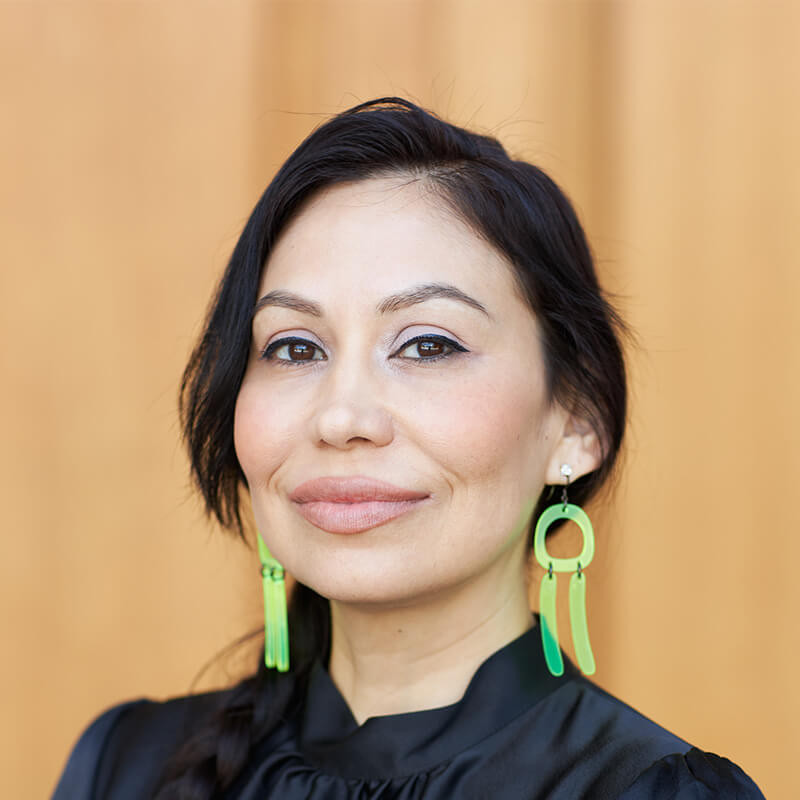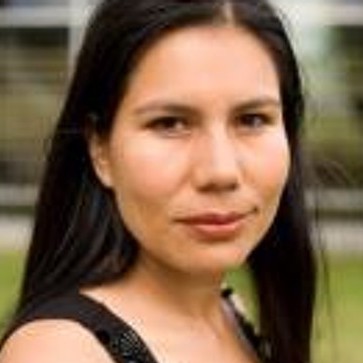As Canada celebrates its 150th birthday, this year’s Hancock Lecture addressed the 15,000-year history of Toronto, or Tkaronto, as a home to Indigenous peoples and the ways in which their legacy and language must be recognized, respected and encouraged to flourish.
Details
Speaker Susan Blight examined the potential for real change, renewed relationships and the repatriation of Indigenous land and life in Tkaronto. This examination is particularly relevant now in light of the Final Report of the University of Toronto’s Truth and Reconciliation Commission Steering Committee, which was submitted to the President and Provost on January 13.
Susan is an Anishinaabe artist and co-founder of the Ogimaa Mikana project, an art collective working to revitalize and reclaim the Anishinaabeg language and territory. Guided by ancestors and committed to future generations, the Ogimaa Mikana project and its supporters seek to activate a decolonial future where Indigenous language is heard, spoken, and valued.
As a site for bringing together Indigenous and non-indigenous people, Susan sees Tkaronto as unique in its combination of cultural diversity and civic engagement. It can become a place to examine new ways of thinking about solidarity-building and creative practices of resistance in support of an Indigenous resurgence in both language and presence.
Following her presentation, Susan was joined for an onstage discussion with artist and activist Kim Katrin Milan and moderator Karyn Recollet.
The evening opened with a prayer delivered by a traditional teacher.
Speakers
-
 Hancock Lecturer
Hancock LecturerSusan Blight
Anishinaabe visual artist, filmmaker, and arts educator from Couchiching First Nation and Indigenous Student Life Coordinator at Indigenous Student Services, University of Toronto
Susan Blight (Anishinaabe, Couchiching First Nation) is an interdisciplinary artist working with public art, site-specific intervention, photography, film and social practice. Susan is co-founder of Ogimaa Mikana, an artist collective working to reclaim and rename the roads and landmarks of Anishinaabeg territory through the revitalization of Anishinaabemowin. She is also a member of the Indigenous Routes artist collective which works to provide free new media training for Indigenous youth.
-
 Discussant
DiscussantKim Katrin Milan
Kim is the co-founder and Executive Director of The People Project; an initiative to bring forth local and international community development for queer and trans folks of color and their allies, through alternative education, art-activism, and collaboration. She is also one of the owners of the Glad Day Book Shop, the oldest LGBT bookstore in the world. As an educator, Kim travels around the world talking to people about justice, equity, and human rights. Kim has also been celebrated in Canada as 2016’s National Youth Role Model and nationally as one of the 50 Most Loved Gay Canadians.
Check out Kim’s TED Talk.
-
 Moderator
ModeratorDr. Karyn Recollet
Professor, Women and Gender Studies, U of T
Karyn Recollet is an Assistant professor in the Women and Gender Studies Institute at the University of Toronto. Karyn is an urban Cree, residing in the traditional territories of the Petun, Wendat, Mississauga’s of the New Credit, Dish with One Spoon treaty territory. Karyn’s research explores the various intersections of Indigenous artistic activations rooted in the multiple layered Indigenous territories that are urban spaces. Karyn’s focal points are choreographic fugitivity, Indigenous futurities, and decolonial love. Karyn’s publications include articles Glyphing Decolonial love, Gesturing Indigenous futurities, and has coedited alongside Eve Tuck, Native Feminist Texts (a special edition of English Journal). Karyn is currently working on a manuscript entitled Urban glyphs: fugitivities, futurities, and radical decolonial love.
